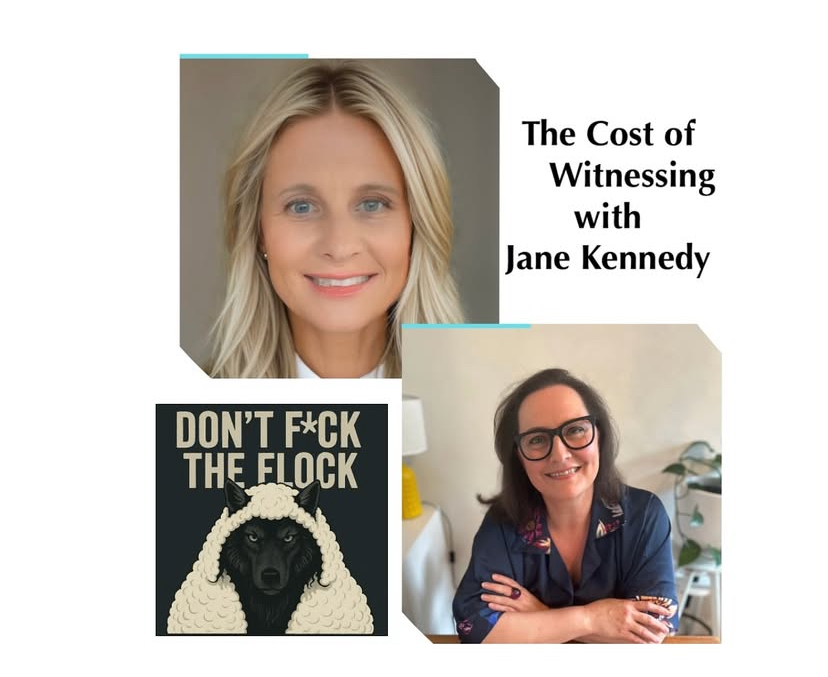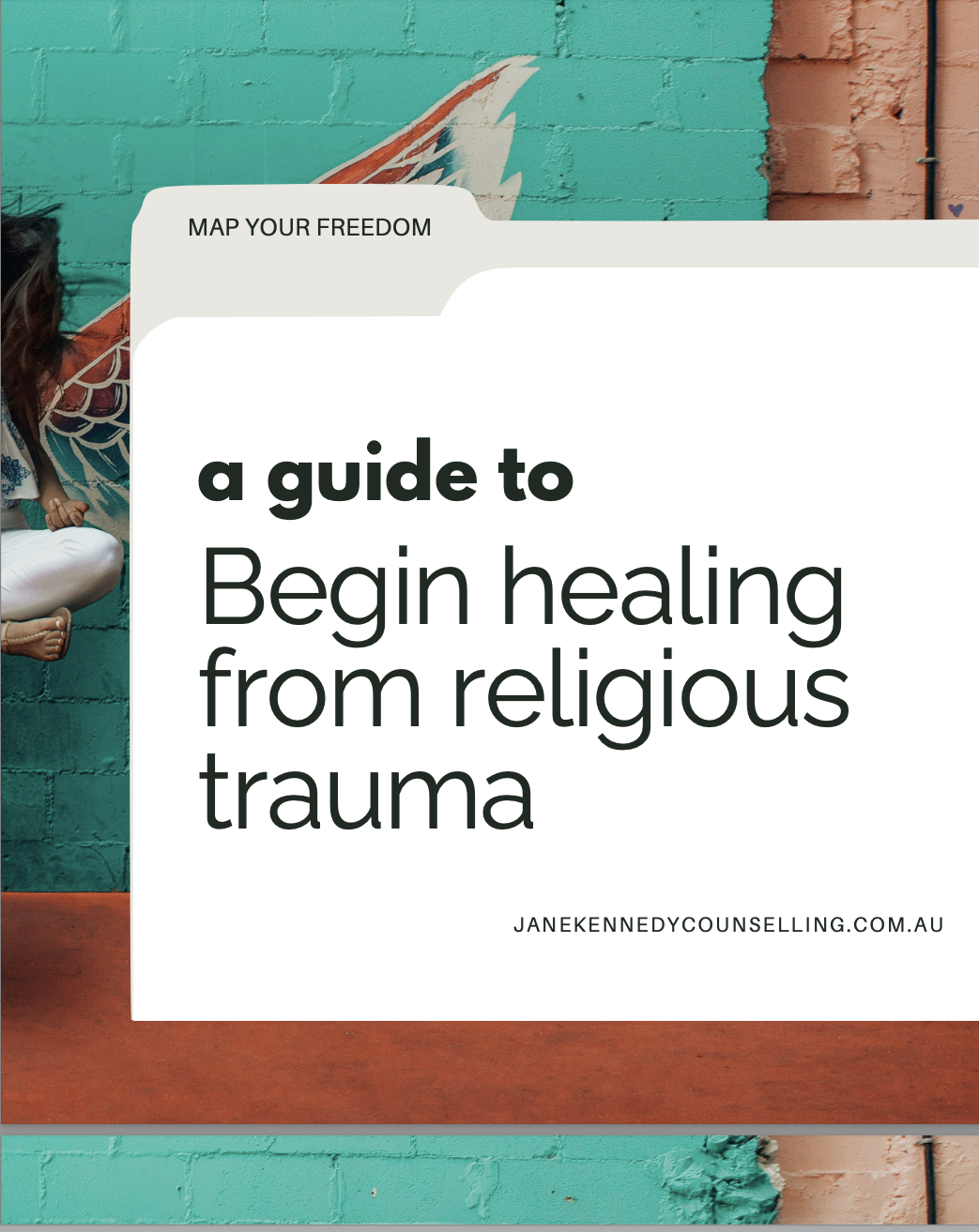I’ve been on a few podcasts over the past few years talking about the impact of religious trauma in the therapy room.
The most recent conversation I had with Jaime Simpson was personal. It was about her story but also my experience of her story. The new podcast is called “Don’t F*ck The Flock” – a shocking title for a shocking reality.
I’ve known Jaime a long time and the episode speaks to our history back to when I was her youth pastor and she was a young teenager.
So fair to say a looong time ago. This was a life altering time for her and one I’ve only fully appreciated in the last few years. I knew then something wasn’t right, that things were happening to her that were really not ok. I just wasn’t exactly sure what they were.
As we spoke about in the episode, I was one of those close to her story who saw the impact and the way she folded into herself, but felt powerless to help. I tried, a few times, but was shut down both by the ones protecting their power and by a denomination with woefully inadequate reporting procedures.
Over the years we lost touch, then found each other as social media became a thing. She started to open up a few years ago and made a complaint and I was relieved, so pleased to be able to support her now all these years later.
Today Jaime is a therapist, an academic and now, a podcaster. Her research is on grooming behaviours specific to pentecostal churches in Australia. It’s a sobering read. I mentioned it in the Substack I put out recently which was about the deep dive I took into Monica Lewinsky’s story and where she is today. I couldn’t unsee the parallels – power dynamics – institutional betrayal – abuse of trust in a relationship that is meant to be safe enough for a young woman to be in.
Revisiting this story threw me. In the lead up I was shaking, my heart rate was up, I felt nauseous and teary. My clever nervous system remembered that time with immense grief and powerlessness. It was letting me know I may not be safe, that speaking up can set in motion big and awful things, implosions. My body was saying, Hey! Are you sure we’re all ok here?
I’ve learnt to make space for these responses. I listen for what they need me to know. I understand now my body is built to feel them and they’re part of being human. Part of processing them is acknowledging and naming them, and asking what do I need next?
Often I need to:
Slow my breathing
Perhaps push up against a wall with all my body weight
Have a cry
Yell into a pillow
Ask for a hug
Thank my nervous system for doing its job and trying to alert me to danger. Then let those younger parts of me know I’m ok. The cycle completes and I can exhale.
Throughout our conversation Jaime and I were both a bit wobbly. But despite the discomfort a trigger can bring, we knew we were safe, that our voices carry power now.
The invitation of a trigger is to feel the emotions that surface with it and observe them, thank them for the information they’re giving you and breathe into the discomfort. If slowing down feels scary, getting your heart rate up however you like, is your go-to.
If you feel up to it, there is a content warning for grooming and sexual abuse, the summary is below.
And if you’d like to connect with me in counselling, with online or in Marrickville, you can get in touch here.
Go gently,
Jane
The Cost Of Witnessing
We often talk about survivors, and rightly so, but rarely do we speak of the cost carried by those who bore witness. Those who saw glimpses of harm but didn’t know what to do. Who were silenced, dismissed, or spiritually gaslit when they raised concerns.
The cost of witnessing isn’t just what someone saw, it’s what they couldn’t unsee.
It’s the questions they lived with, the guilt for not doing more, the fear of speaking out.
The relationships that became strained or shattered when they tried.
Some witnesses carry secrets they were never meant to hold. Others become complicit in systems that punish truth-telling. Many absorbed a kind of secondary trauma, grief, confusion, and helplessness. Over time, their trust in leaders, and sometimes even in their own perceptions, eroded.
Witnessing can fracture faith. It can rupture community.
It can leave people standing in that lonely middle ground between silence and action.
It’s a place that often goes unnamed, but it deserves compassion, clarity, and honouring.
That’s why I’m so grateful to have this conversation with one of my own witnesses , so I can now bear witness to her witnessing.
Today’s episode is the first time I’ve really had space to think about what it’s been like for the witnesses around my story.
And so, I’m honoured to welcome someone who was part of it from the very beginning.



